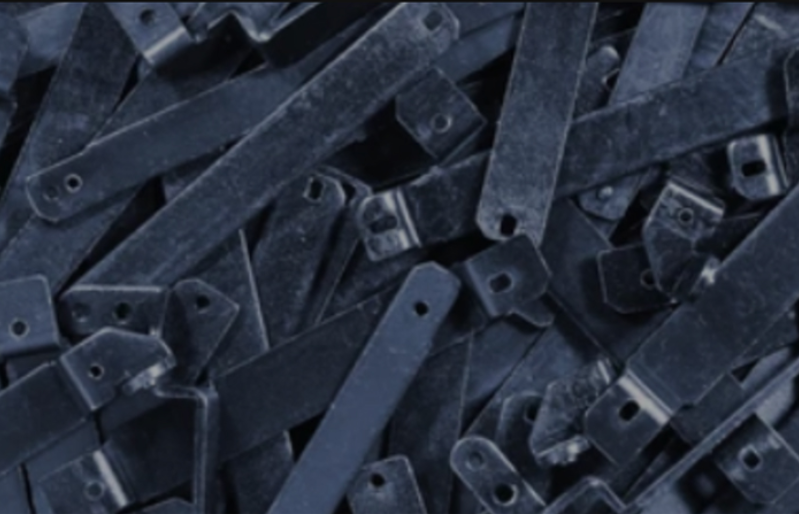Introduction
In recent years, there has been a growing interest in lightweight materials due to their potential for revolutionizing various industries. Among these lightweight materials, magnesium has emerged as a promising candidate, thanks to its low density and excellent mechanical properties. This article aims to explore the benefits and challenges of magnesium casting, as well as its potential applications in different sectors.
Benefits of Magnesium Casting
1. Lightweight: One of the most significant advantages of magnesium casting is its low density. Magnesium is about 36% lighter than aluminum and 78% lighter than steel, making it an ideal choice for applications that require weight reduction. This property is particularly appealing in the automotive industry, where lightweight materials can improve fuel efficiency and lower emissions.
2. High Strength-to-Weight Ratio: Despite its low weight, magnesium alloys exhibit impressive strength-to-weight ratios. This characteristic makes them suitable for applications that demand both strength and lightweight properties, such as aerospace components and sports equipment.
3. Good Thermal Conductivity: Magnesium alloys also possess excellent thermal conductivity, allowing for efficient heat dissipation. This property is essential in applications where heat management is critical, including electronic devices and powertrain components.
4. Enhanced Casting Properties: Magnesium has excellent castability, offering designers and manufacturers greater flexibility in creating complex shapes and intricate designs. It can be easily cast into various forms, including thin-walled structures, making it suitable for applications that require intricate detailing.
Challenges of Magnesium Casting
While magnesium casting offers numerous benefits, it is not without its challenges. Some of the common challenges associated with magnesium casting include:
1. Flammability: Magnesium is highly flammable, making it more challenging to handle during the casting process. Special care must be taken to ensure safety precautions are in place to prevent accidents and fires.
2. Corrosion: Magnesium is prone to corrosion, especially in harsh environments. Surface treatments and protective coatings are often required to enhance its corrosion resistance and ensure long-term durability.
3. High Reactivity: Magnesium has a high reactivity with oxygen and moisture, making it difficult to handle without proper precautions. Strict air and moisture control measures must be implemented throughout the casting process to prevent oxidation and degradation of the material.
Applications of Magnesium Casting
1. Automotive Industry: The automotive industry has been a major adopter of magnesium casting due to its weight reduction potential. Magnesium components, such as engine blocks, transmission cases, and structural parts, can significantly reduce the overall weight of vehicles, leading to improved fuel efficiency.
2. Aerospace Industry: The aerospace sector has also started exploring the use of magnesium casting for various applications. Lightweight magnesium alloys can be used for aircraft components, such as seat frames, brackets, and structural elements, contributing to weight reduction and fuel savings.
3. Electronics Industry: The excellent thermal conductivity of magnesium makes it suitable for heat sinks, electronic housings, and other heat management components. Its lightweight nature and good electromagnetic shielding properties make it an attractive choice for portable electronic devices.
4. Sports Equipment: Magnesium casting has found applications in the production of sports equipment, such as golf club heads, tennis racquets, and bicycle frames. The combination of lightweight properties and high strength-to-weight ratio enhances performance and maneuverability in these applications.

Conclusion
Magnesium casting has unlocked the potential of lightweight materials, offering numerous benefits in terms of weight reduction, strength-to-weight ratio, thermal conductivity, and design flexibility. Despite the challenges associated with its handling and corrosion resistance, magnesium casting has found applications in various industries, including automotive, aerospace, electronics, and sports equipment. As research and development continue, magnesium casting is expected to play a more significant role in the future, driving innovation and efficiency across multiple sectors.
-

- Magnesium alloy die-casting LED display frame
-

- Zpracované díly a komponenty pro střední desku mobilního telefonu z Thixomoldingu
-

- Vysoce přesné tlakové odlitky z hořčíkové slitiny pro automobilový zámek zapalování
-

- Customized die-casting parts&components
-

- Tlakové lití z hořčíkové slitiny Autodíly Kryt RDM
-

- Tixomulační lití z hořčíkové slitiny odlévání dílů UAV

 0086-750-5616188
0086-750-5616188 +86 13392089688
+86 13392089688 sales@zhongmei-tech.com
sales@zhongmei-tech.com







